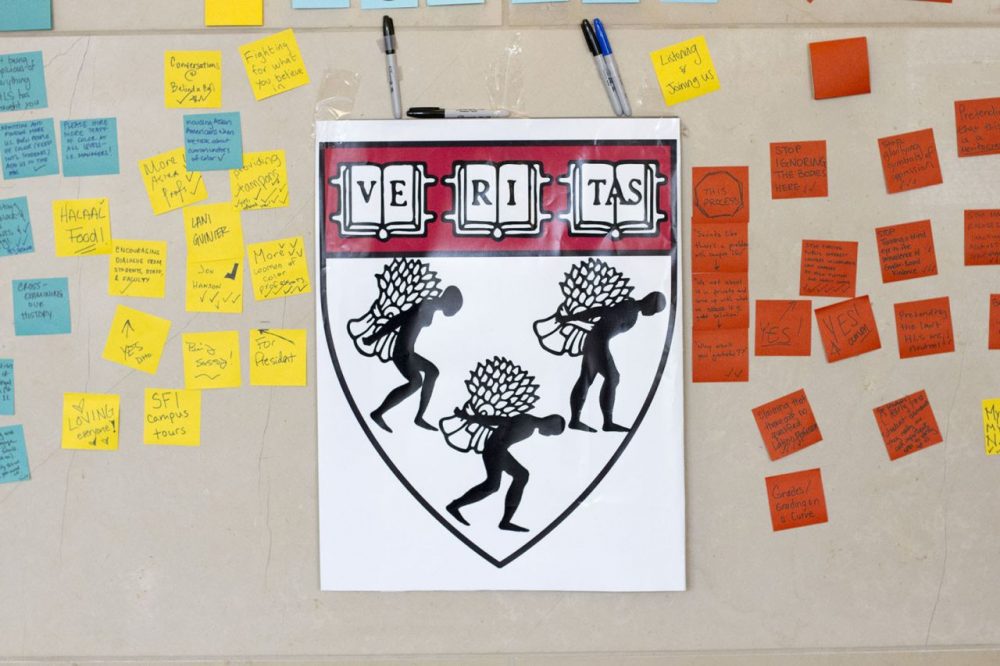Advertisement
What To Do About The Undeniable Connection Between Elite Universities And Slavery
Resume
On Monday, Harvard Law School decided to officially change its seal — the slave-owning Royall family coat of arms will be scrubbed from the school logo by next year.
But what does this latest cleansing of university history mean in the larger context of elite education and its racist past?
According to Craig Steven Wilder, professor of history at MIT, "The American academy never stood apart from American slavery—it stood beside church and state as the third pillar of a civilization built on bondage."
Guest
Craig Steven Wilder, professor of history at MIT and author of "Ebony and Ivy: Race, Slavery, and the Troubled History of America’s Universities." He tweets @craigswilder.
More
WBUR: Harvard Is Dropping Its Controversial Law School Shield
- "Harvard Law School is officially retiring its controversial shield. A panel of faculty, students and alumni recommended earlier this month that the shield be dropped because of its association with an 18th century slaveholder. The Harvard Corporation, the university’s highest governing body, approved that recommendation on Monday."
NPR: How Slavery Shaped America's Oldest And Most Elite Colleges
- "'The academy never stood apart from American slavery,' Wilder writes in the book. 'In fact, it stood beside church and state as the third pillar of a civilization built on bondage.' But those early colleges also made a point to reach out to wealthy families in the Caribbean, where there were few colleges and universities."
Here & Now: The Slave-Owning Family That Helped Start Harvard Law School
- "For a deeper look at school’s history, Here & Now’s Jeremy Hobson speaks with Daniel Coquillette, a professor at Boston College Law School and co-author of 'On the Battlefield of Merit: Harvard Law School, the First Century.'"
Time Magazine: A Different View On Harvard Law’s Shield
- " Maintaining the current shield, and tying it to a historically sound interpretive narrative about it, would be the most honest and forthright way to insure that the true story of our origins, and connection to the people whom we should see as our progenitors (the enslaved people at Royall’s plantations, not Isaac Royall), is not lost."
This segment aired on March 16, 2016.